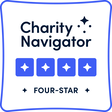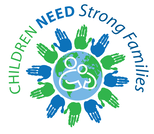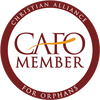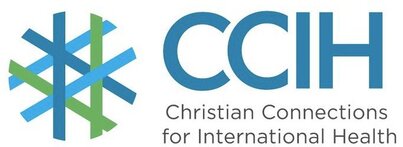|
This past week, Helping Children Worldwide was thrilled to participate in the International Conference on Adoption Research (ICAR) held in Minneapolis, Minnesota. ICAR has long been a vital platform for researchers and adoptees to share knowledge and experiences around adoption. However, in recent years, the conference has broadened its scope to encompass the critical issue of caring for children separated from their families globally. This shift reflects a significant trend – a decline in intercountry adoption and a growing movement to close orphanages and prioritize family reunification or domestic fostering for children in need. HCW is at the forefront of this movement, advocating for solutions that keep children connected to their families and communities whenever possible. We were honored to have our abstract accepted for presentation this year. In 2022, HCW received a grant from the Christian Alliance for Orphans (CAFO) to conduct research alongside Dr. Sarah Neville, then a Ph.D. student at Brown University and now at professor at Boston College. Our project focused on Evaluating the family strengthening curriculum that CRC uses to improve parent child relationships. The presentation of our findings at ICAR ran in tandem with presentations on de-institutionalization efforts around the world. Representatives from organizations like Changing the Way We Care and CAFO joined the discussion, creating a valuable opportunity to share best practices and collaborate on solutions. Beyond our presentation, ICAR-8 provided a fantastic platform to connect with other researchers in the field. We gained invaluable insights into the emotional, spiritual, and physical well-being of children in different family placements. This knowledge will be instrumental in guiding our future work and advocacy efforts.
HCW remains committed to supporting children and families in the best way possible. By prioritizing family reunification and domestic fostering, we can work together to end institutional care and ensure a brighter future for vulnerable children worldwide.
0 Comments
This year might be the 25th anniversary of the International Conference on Adoption Research (ICAR-8), but it's the first time that HCW will have attended, and presented at this important conference. HCW's work has tended to be more focused on child welfare and child protection than adoption, but this year marks a shift in ICAR-8's focus to include more participants and presenters engaged in the care of orphans and children separated from family care globally, that are providing solutions to family separation in addition to adoption.
The 8th international ICAR-8 being held July 8 - 12 at the University of Minnesota, is a "a premier event for attendees from the Global South and the Global North who are devoted to ensuring permanent, nurturing family care for every child. A cross-disciplinary exchange of ideas, innovation and information, the conference explores how to improve the entire spectrum of services for children without permanent families." HCW's Dr. Laura Horvath, and Yasmine Vaughan, along with a virtual, pre-recorded Dr. Sarah Neville, will be presenting on "Family preservation and strengthening research and practice in the context of care reform in Sierra Leone." In this presentation, the trio will share the CRC's story of transition from institutional to family care, the effectiveness of the CRC's Family Strengthening program as evidenced by research conducted by Dr. Neville, and the steps that HCW and CRC are taking to revise the workshop program based on the outcomes of that research. HCW is excited to be a part of this important conference focused on "ensuring a safe, permanent family for every child" all over the world. Every year we try to prepare our mission teams for traveling to Sierra Leone by taking them through four mission prep sessions. One of those sessions is focused on poverty, and draws largely from the work done by Brian Fikkert and the Chalmers Center. Poverty is often seen as a clear-cut issue – a lack of money, inadequate housing, and limited access to basic necessities. But how do impoverished people view poverty? A study by the World Bank finished in the year 2000 attempted to answer this question by giving a voice to the lived experiences of over 60,000 people living in poverty across 60 countries. The study called "Voices of the Poor," revealed a crucial truth: poverty is more than just a lack of material possessions. It showed that across multiple languages, ethnic groups, lived experiences, gender roles, and economic structures, there is a universality in the experience of poverty, and that universal experience does not match traditional definitions of poverty. While material possessions were mentioned, poor people talked extensively about dependency, powerlessness, voicelessness, hopelessness, and a lack of access to assets that would bring them out of poverty. Poverty then is more than a lack of things; it's a complex web of feelings, experiences, and powerlessness that shapes every aspect of life. Therefore, while eliminating the external barriers that trap people in poverty, like lack of access to education or healthcare, is crucial, it's not the whole story. Overcoming the internalized "poverty mindset" – a belief system of limitation and scarcity – is equally important. This mindset can hinder motivation, perpetuate feelings of helplessness, and act as a barrier to seizing opportunities that could lead to a better future. How Well Do We Actually Understand Poverty?In order for organizations like us to eliminate the mental barriers to poverty alleviation, we have to understand these barriers ourselves. Because traditional, purely economic views of poverty are limited in their ability to truly define the experience of poverty, understanding poverty also requires us to shift from a focus on people’s situations towards a focus on people’s emotional experiences. Understanding that someone lives on less than $2 US dollars a day is very different than understanding what it feels like to live on $2 a day. Therefore, to truly understand their struggle, we need to move beyond head knowledge (facts and figures) to heart knowledge - empathy for their emotional experience. This has had us asking questions like: Do we truly understand the experiences faced by those living in poverty? Are we led by our own ideas about poverty rather than the reality of what poverty is like? How can we support our partners as they build programs that tackle the physical and mental barriers to poverty? How do we explain the experience of poverty to our donors and mission teams The Lived Reality of Poverty in the United StatesIn order to begin answering these questions, I (Yasmine Vaughan) attended a poverty simulation experience hosted at a local church. The simulation was developed by an organization called Think Tank, and was focused on the experience of living in poverty in the United States. The simulation is organized into four 15-minute blocks, with each 15 minutes representing a week in our lives. After a short introduction video, we were assigned identities and organized into family groups. Each family had different dynamics: Some were married couples with many young children, some were unmarried couples, some were single-parent families, and some were even young children living on their own. Each family was given a short introduction to their family dynamics, a list of assets they possessed like cars, expensive items they own like tablets or phones, and a list of bills and the amount that needed to be paid each month. In this scenario, I was a father who had recently been released from prison on parole, and was living with my girlfriend and our three-year-old daughter in a home owned by her mother. I didn’t have a job because of my incarceration and my girlfriend was trying to juggle paying our bills, taking care of our daughter, and going to school in the evenings. We signed up for Medicaid but could not find our Medicaid card, so we were unable to access any of the medical services. We were given some simple instructions on where we could go (the Mega mart, banking and loan, government services, school, faith centers, health centers, housing, jobs, police, and transportation) and reminded that we could not visit any of those places without a transportation voucher. You had three options for transportation vouchers: Bus, Car, or Walking. The bus would cost money, you could only drive a car if that was one of the assets you were given at the beginning of the simulation and if you had money to pay for gas. If you had to walk, you were given a timer for 3 minutes to represent the 20% of your week spent just trying to get where you need to go. Other than these instructions, very little was explained to us, which represented the fact that when it comes to surviving you will not always know where to go or what you’re supposed to do. I struggled with questions like, Where do I go to find a job? Who could help me figure out how to apply for work? What will happen if I don’t show up for my probation officer because I’m trying to find work? Can anyone help me? It never even occurred to me to try and visit government services or a faith center until the last 15 minutes, because I was so focused on how to pay our bills and survive the next week. Paying the Mortgage vs. Buying a Meal My partner (who played the girlfriend) and I were confronted with decisions regarding which bills to pay first and constantly wondered if we were doing the right thing: Should I get groceries this week, pay the utility bill, or pay the mortgage? Because we don’t have the money for everything, which penalty can we live with? It never felt like we had enough time to think and plan our next steps and also do all of the things that we needed to do to survive that week. Basic needs felt like luxuries. Accessing resources was a complex maze of forms, long lines, and uncertainty. I witnessed other families being turned away and discriminated against based on their racial background, and at the end of the week I would see families who had eviction notices on their houses. During the debrief, we learned of families who had severe medical conditions and were unable to receive services, families who fell victim to predatory loans and pawn shop dealers, and families who came back to their homes at the end of the week only to realize that their assets had been stolen. The woman who operated the bank shared at the end how easy it was to lie to people about how much money they had in their bank account so that she could steal money. Two families were given a gun halfway through the simulation, and one of them ended up in jail when they tried to use this “asset” to provide for their family. My family was more successful than most. We did not get evicted from our house. My girlfriend was able to attend school every week and we paid most of our bills by the end of the month. However, we went without food for almost three weeks and I spent most of my time walking everywhere I needed to go because my girlfriend had the car and we could not afford gas or the costly repairs it needed. We only got groceries the last week because we were given some at a food pantry at the faith center, and even those were not very nutritious. We survived those four weeks, but I’m not sure we could have gone any longer. Even with careful budgeting, unforeseen events like a broken appliance or a medical emergency would have thrown our family into a tailspin. Even though I have never been in this situation--I am not a man, I’m childless, and I’ve never been incarcerated--I still felt the shame of trying to find work to take care of my girlfriend and her child. It was an extremely stressful two hours and I felt an incredible amount of duress and helplessness. The choices were real, and the consequences were harsh. A Silver Lining & An Important Reminder The simulation wasn't all despair though. One comfort I had was knowing my girlfriend (my partner in this simulation) was there with me. We were both in this together and were able to rely on each other to make decisions. It reminded me of the immense value of family support. The experience underscored the importance of strengthening families, not just to weather hardship, but to foster a safe and nurturing environment for children to grow and thrive. As my simulation partner said to me as we embarked on week two, “At least we are in this together.” The simulation challenged my own understanding of poverty in a visceral and emotional way. I think the only thing that could have made it more genuine is if I had fasted before going to the simulation, so I could really feel the brain fog and hunger that I would have had from going three weeks without a meal. However, I still experienced the vulnerability and lack of control that poverty entails, and felt that I was in a constant battle against a system that seemed stacked against me. It helped me understand how a laser focus on survival could mean that impoverished people are completely unaware of the community and supporting assets that they could have access to, and how important it is for organizations like the CRC to help family identify their own assets. While the poverty simulation I participated in focused on the US context, the experience resonated deeply with what I've learned about poverty in Sierra Leone. The feelings of helplessness, the constant worry about basic needs, and the struggle to make ends meet were strikingly similar, highlighting the universality of poverty's emotional toll. However, I was keenly aware that the simulation didn't capture the full picture in Sierra Leone. Unlike the US safety nets that sometimes provided a buffer in our simulation, the lack of social support systems in low- and middle-income countries like Sierra Leone creates a harsher reality. This experience underscored the need for not just empathy, but also targeted solutions that address the specific challenges faced by those struggling with poverty in different contexts. Sierra Leone: A Slow Shift Toward a More Sustainable Approach The poverty simulation was a powerful and thought-provoking experience. While I left with a newfound empathy for those facing poverty, I'm still grappling with how to best translate this knowledge into our programming at Helping Children Worldwide. It's clear that addressing poverty requires more than just material solutions; empowering families and communities requires tackling the emotional burdens as well. We're committed to evolving our programming beyond immediate relief efforts. Our focus is shifting towards a more sustainable, developmental approach. By empowering local communities and building long-term solutions, we aim to equip families with the tools and resources they need to break the cycle of poverty and build a brighter future. This means equipping families and individuals with the tools and resources they need to climb out of poverty for good, not just survive day-to-day. This kind of work takes time and requires us to set aside the mindset that the solution to poverty is through material provision alone. That material focused mindset is difficult to shake, and also has emotional attachments with it; seeing a family receive a bag of rice or giving a homeless person a few dollars makes us feel good, and separating out what feels good and what is right is difficult. We challenge you to pray with us as we work to find the right solutions to build resilience in families and communities. Let's Go Deeper Together...Lastly, as the mission person, my goal is to foster compassion, build connections, and influence our ministry partners to join us in this important work. One way we're exploring achieving this is by considering whether a similar poverty simulation experience oriented towards low and middle-income countries could be offered to our donors and supporters. By allowing you to walk a mile in someone else's shoes, we hope to deepen your understanding of the challenges faced by families living in poverty, ultimately strengthening our collective impact in empowering communities around the world. If you were moved by reading about this experience and your church, ministry group, community of practice, or school group is interested in participating and hosting an event like this, please e-mail [email protected] to learn more.
|
Follow us on social media
Archive
July 2024
Click the button to read heartfelt tributes to a beloved Bishop, co- founder of our mission!
Post
|
Helping Children Worldwide is a 501 (c) 3 nonprofit organization | 703-793-9521 | [email protected]
©2017 - 2021 Helping Children Worldwide
All donations in the United States are tax-deductible in full or part. | Donor and Privacy Policy
©2017 - 2021 Helping Children Worldwide
All donations in the United States are tax-deductible in full or part. | Donor and Privacy Policy











